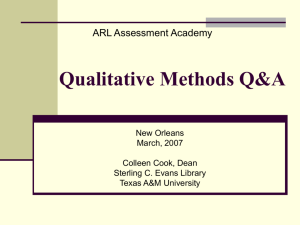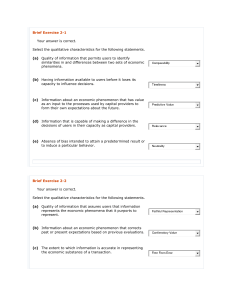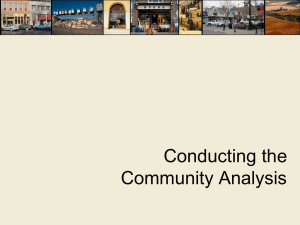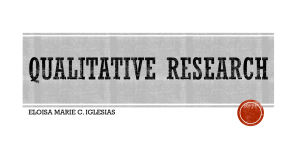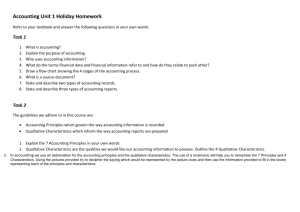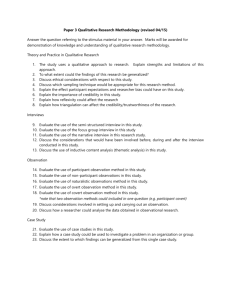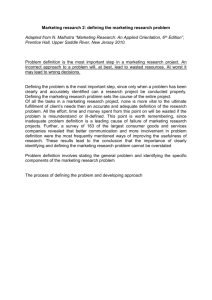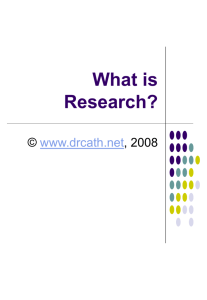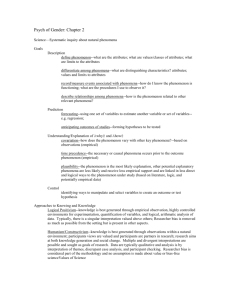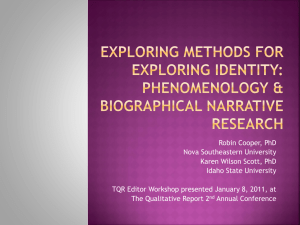Qualitative Research: Strengths & Weaknesses | Table
advertisement
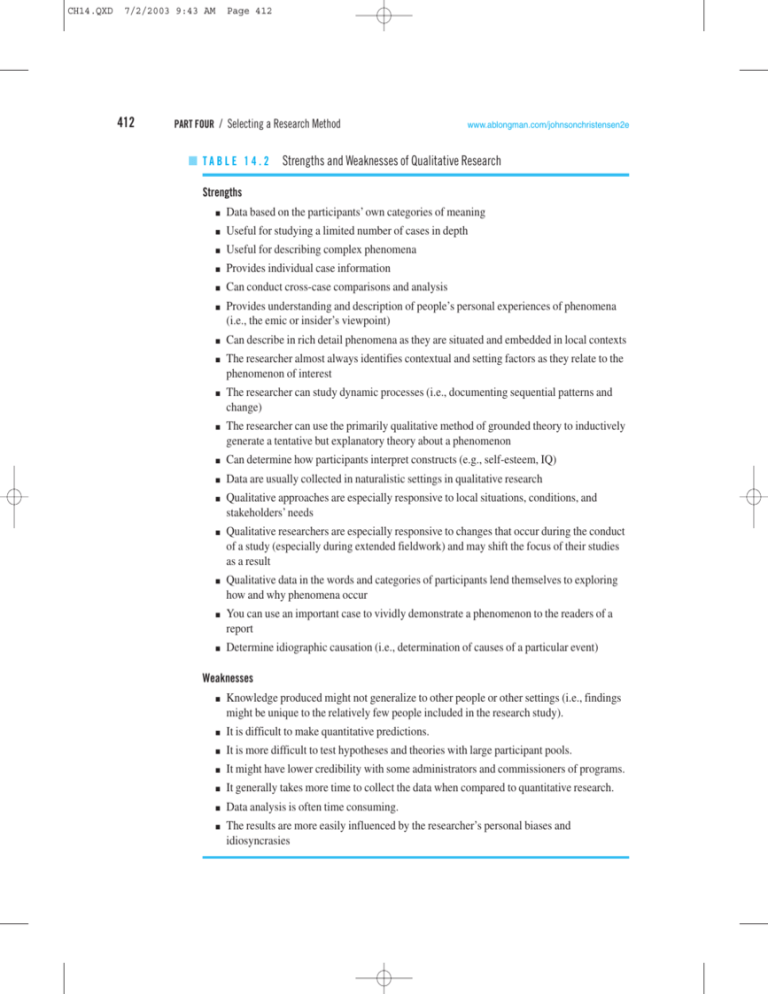
CH14.QXD 7/2/2003 9:43 AM 412 Page 412 PART FOUR / Selecting a Research Method ■ TABLE 14.2 www.ablongman.com/johnsonchristensen2e Strengths and Weaknesses of Qualitative Research Strengths ■ Data based on the participants’ own categories of meaning ■ Useful for studying a limited number of cases in depth ■ Useful for describing complex phenomena ■ Provides individual case information ■ Can conduct cross-case comparisons and analysis ■ Provides understanding and description of people’s personal experiences of phenomena (i.e., the emic or insider’s viewpoint) ■ Can describe in rich detail phenomena as they are situated and embedded in local contexts ■ The researcher almost always identifies contextual and setting factors as they relate to the phenomenon of interest ■ The researcher can study dynamic processes (i.e., documenting sequential patterns and change) ■ The researcher can use the primarily qualitative method of grounded theory to inductively generate a tentative but explanatory theory about a phenomenon ■ Can determine how participants interpret constructs (e.g., self-esteem, IQ) ■ Data are usually collected in naturalistic settings in qualitative research ■ Qualitative approaches are especially responsive to local situations, conditions, and stakeholders’ needs ■ Qualitative researchers are especially responsive to changes that occur during the conduct of a study (especially during extended fieldwork) and may shift the focus of their studies as a result ■ Qualitative data in the words and categories of participants lend themselves to exploring how and why phenomena occur ■ You can use an important case to vividly demonstrate a phenomenon to the readers of a report ■ Determine idiographic causation (i.e., determination of causes of a particular event) Weaknesses ■ Knowledge produced might not generalize to other people or other settings (i.e., findings might be unique to the relatively few people included in the research study). ■ It is difficult to make quantitative predictions. ■ It is more difficult to test hypotheses and theories with large participant pools. ■ It might have lower credibility with some administrators and commissioners of programs. ■ It generally takes more time to collect the data when compared to quantitative research. ■ Data analysis is often time consuming. ■ The results are more easily influenced by the researcher’s personal biases and idiosyncrasies
